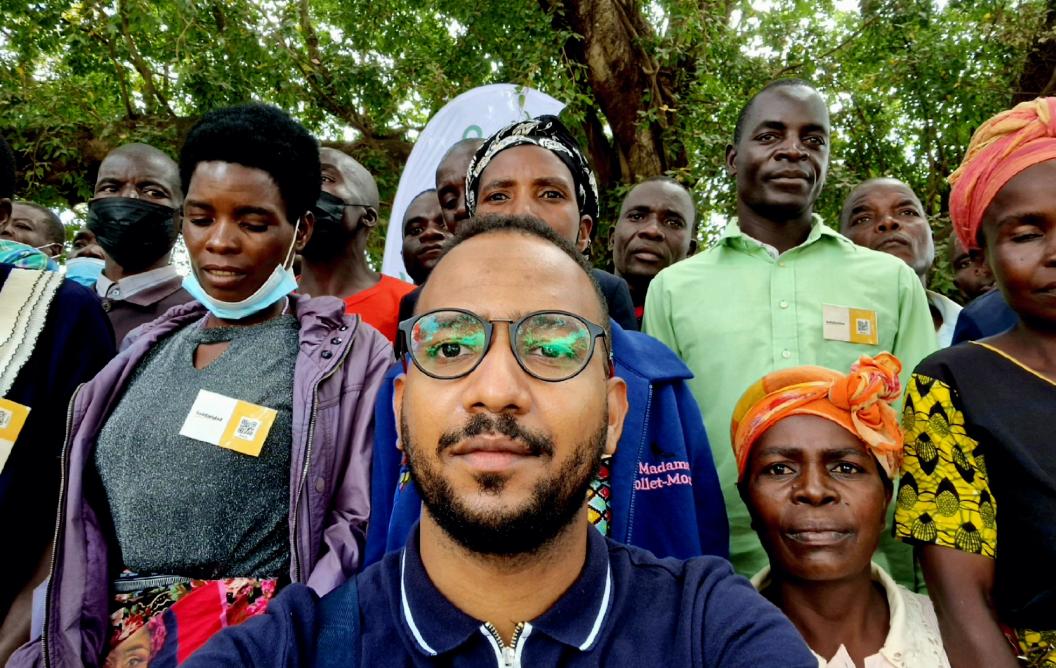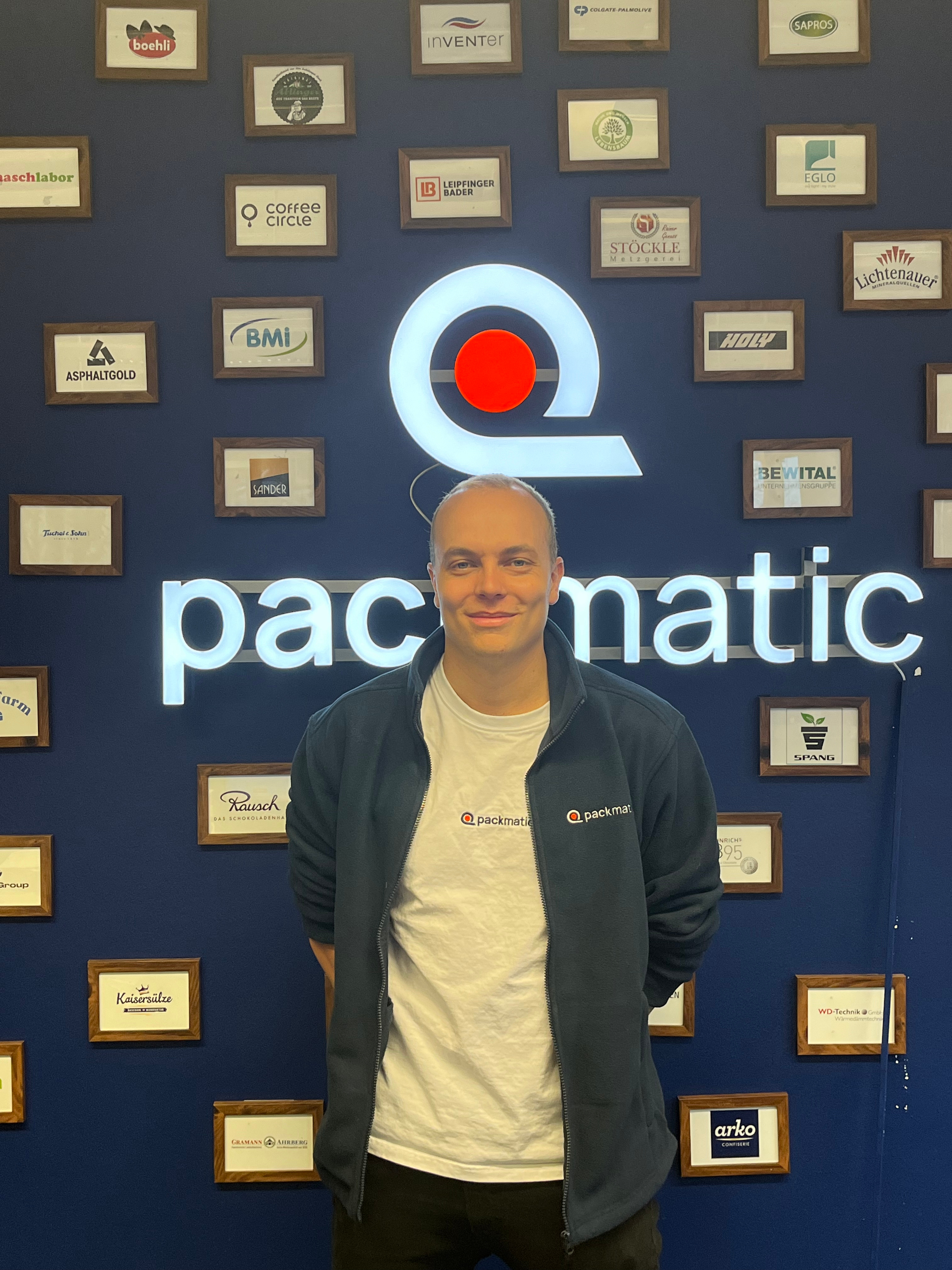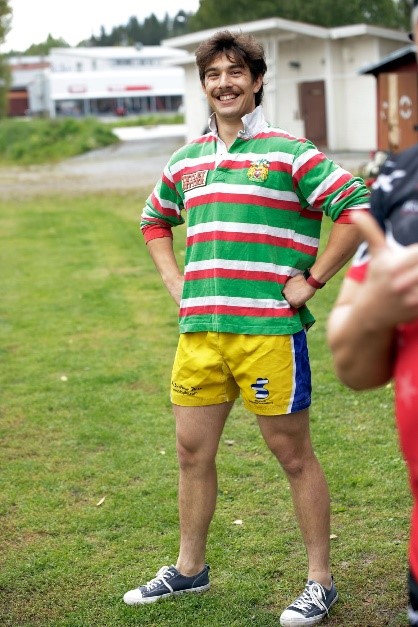Fair-trading in smallholders’ data
The rise of compliance reporting to make the lucrative coffee and cocoa trade more sustainable means millions of smallholder farmers generating valuable data. Who owns this data and who should benefit? SBE’s Fair & Smart Data Spearhead Sidi Amar and his team have developed some principles.
“Coffee and chocolate are such an integral part of European culture – but really, it’s related to the darkest parts of colonial history. Europeans cleared the land, brought new diseases and pests, manufactured famines, and enslaved many people. A lot of today’s structural problems are because of that.” Most of the cocoa and coffee is grown for export in countries whose economies rely heavily on raw materials.
Who’s yanking the global value chain?
A smallholder coffee farmer would need to produce more than three pounds of coffee to afford a cappuccino in the Netherlands containing 10 grams of ground coffee. “International trade has improved living conditions in the Global South – but in an unequal and unsustainable way, partly because of corruption and the ingrained colonial structures of that trade. The farmers do not have access to the necessary capital and technology.”
Smallholder farmers produce around 70% of all cocoa and 80% of all coffee. They are often socially vulnerable with very limited financial resources, cultivating smaller fields in rural areas of the Global South for subsistence and cash crops. “We are talking about millions of people in Sub-Saharan Africa, South and Southeast Asia and South America, who are farming some of the most lucrative commodities and who are essential for food security. Yet, many of them live in agricultural poverty.” Smallholders have no bargaining power unless they are part of a well-run cooperative. The price of their commodity is determined by the stock market.
“These people exist outside our sphere of awareness. The multinational companies and the intermediaries making the money may be European but there is a sense that the smallholders are outside of our democratic remit. A common political narrative is that Western governments can’t and shouldn’t control whether the people at the beginning of the value chain live below the poverty line.” The unspoken assumption is also that minimum wages or prices would damage the competitiveness of companies based in e.g. the Netherlands.
Green, humanist epiphany
The EU’s new Corporate Sustainability Reporting Directive would require all large and listed companies to include in their sustainability reporting the impact of their activities on people and the environment, as well as their estimation of risks and opportunities arising from social and environmental issues. “The issue of living income and living standards has been raised and people have started thinking about that as part of a sustainable economy.”
The environmental issues are only getting more pressing. For example, Arabica coffee grows on mountainsides. Climate change, deforestation and soil erosion are forcing many coffee farmers to move to higher altitudes. While Africa is a continent of unlimited possibilities, its mountains do top out eventually. “With less arable land and fewer people able to put up with the low income, big corporations are starting to become aware that this lucrative market might face serious threats fairly soon.”
One doesn’t have to care for sustainable profits, a liveable planet, or the concept of human dignity to be concerned about this either. “One of the looming threats is that between soil degradation and an income so low that farmers have to work second or third jobs anyway, young people are turning away from farming in droves and instead migrate – in the case of Africa often via the Mediterranean. All of this could be avoided by making the way we source our raw materials more just and sustainable.”

Sidi Amar is a researcher at the Brightlands Institute for Supply Chain Innovation (BISCI), School of Business and Economics (SBE), Maastricht University

Amar with smallholder farmers in Malawi
The value of data
There is now more reporting on the sustainability of those crops than ever. In practice, that means smallholders gathering data to be able to sell their crops. “Data collection improves agricultural practices and makes for more resilient crops. The data can be used for marketing, and it has to be used for compliance reporting or, for example, to earn sustainability or Fairtrade certificates. It clearly generates measurable value, but it’s somehow not seen as something that the people who collect it should be compensated for.”
A specific example is carbon markets. Companies can offset their carbon emissions for example by paying specialised organisations. In the most questionable case, people are paid for how much rainforest they refrain from burning down, but it can also take the form of financing agroforestry-based carbon sequestration. “For example, a farmer can plant trees in their field that bear fruit, provide shade for coffee seedlings, and bind carbon from the atmosphere. This could be a real win-win situation if pre-financing is available and the payments for carbon units consider a certain living income level.”
To help the more powerful, well-resourced stakeholders who aggregate and valorise the data act fairly, Amar and colleagues have come up with a best practice guide containing five principles: “The first principle, ethical responsibility, and accountability, means multinationals and NGOs acknowledging their position of power, to only collect data when it’s legitimate and necessary. You need to clearly explain what you’re doing, why, and how valuable it is.”
Unequal data ecosystem
The principle of sustainable benefit-sharing is not just financial. “For example, if analysis of the data has shown that a certain fertilizer leads to lower quality yield, the farmers who provided the data should be informed of that.” To guarantee a similar level of safety and dignity to smallholders as the GDPR provides for European citizens, there is a principle covering legitimate expectations of privacy and security, including a process for communication and compensation in case of a data breach.
While Amar was surprised by how digitally skilled African smallholders were in general, there is still a vast imbalance in power within the system. “The principle provision of practical necessities refers not only to devices and infrastructure but also to training and education to participate in the data ecosystem.” The principle of transparent and deliberate decision-making and conflict resolution asks for clear mechanisms and communication to underwrite the previous principles.
“Smallholders often lack an awareness of their data’s value; they don’t have the resources to participate or the legal framework to protect them. The intermediaries and companies benefitting from the data are usually based in Europe. We wanted to suggest a voluntary framework that extends those protections.” Amar thinks voluntary commitments can make a difference if enough companies sign up for them and become convinced of their efficacy for sustainable business.
Hoping to make a difference
Together with Rabobank and the NGO Solidaridad, FSD will organise an event in November to discuss the viability of those guiding principles with representatives of companies and other industry actors. “It would have an impact. Depending on the feedback, we might also develop tools that help with the implementation of these principles.”
Academically and geographically, designing these principles was quite the journey for Amar. He is from Mauritania, but his research took him to many African countries he had never visited. His academic training was in industrial engineering focusing on energy transition. It was a steep learning curve. “I wasn’t aware how little smallholders earn. Things in our supermarkets are only this cheap because we do not include the environmental and social costs in the price… Changing the way we consume is the price we must pay for fairness and sustainability.”
Watch this video to find out more about the Fair and Smart Data research.
Text: Florian Raith
Also read
-
In recent years, there has been quite some debate surrounding the value of rakings. So the question is: do university rankings really matter that much? Fair question. In this article, SBE’s Dean Mariëlle Heijltjes and SBE’s Associate Dean Gaby Odekerken weigh in on the subject.
-
SBE alumnus Paul Schraven reflects on his journey after Maastricht University School of Business and Economics (SBE). After a stint in management consulting, he co-founded SparkSupply in Berlin, connecting students to startups. Shifting away from this model, he worked remotely for a US startup...
-
SBE alumnus Riccardo Notarangelo works as a Project Researcher at the University of Vaasa in Finland. In this article, he shares how his studies and experience at SBE and his love for rugby contributed to him going to where he went and ending up where he is.


